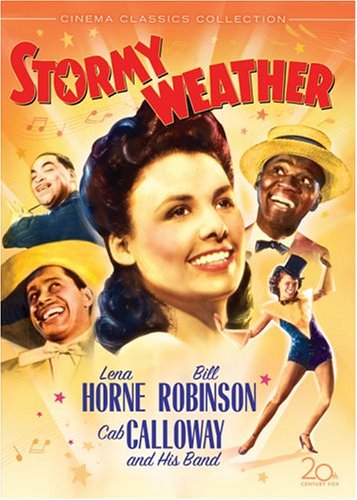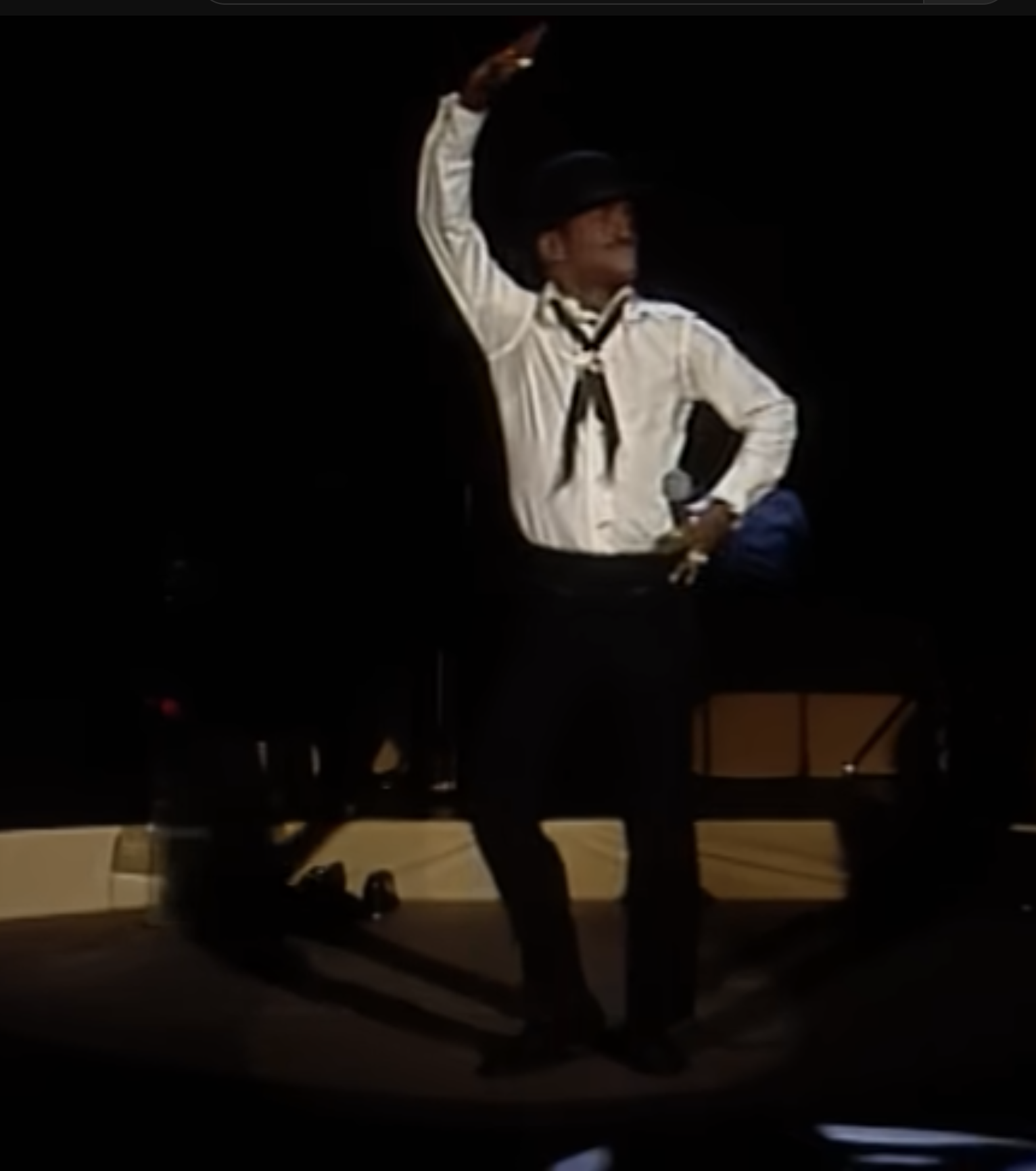Stormy Weather
From the middle of the Golden Age of Hollywood, 20th Century Fox's "Stormy Weather". One of only two Hollywood musicals in 1943 with an all-black cast. Stormy Weather features the leading African American performers of the then current day. The film packs 20 musical numbers in 77 minutes of runtime.
Version to be shown
1943's black and white "Stormy Weather", made against the backdrop of the second world war, celebrates the life and work of Bill "Bojangles" Robinson (1878-1949). Mr. Robinson was widely famous for his series of collaborations with Shirley Temple in the 1930's. Robinson was the first black performer to perform as a black man but without the blackface makeup. He was a trailblazer for the American black performer. He was the first black vaudedille performer to appear solo (previously, blacks could only appear on stage if there was a white performer as well). He was the first black actor to appear in a Hollywood film (The Little Colonel). He was also the first black actor to headline in a mixed-race Broadway production. Congress designated May 25 as National Tap Dance day in his honor.
The film also features the Nicholas Brothers towards the end in a big dance number in Cab Calloway's Cotton Club. Fred Astaire called it the "greatest movie musical number he had ever seen".
Other legendary black performers include Fats Waller (Ain't Misbehavin') and the Katherine Dunham dancers. In full disclosure, the character portrayed by Lena Horne, "Selina Rogers" is a character created just for the film. And don't miss the comedic contributions of Dooley Wilson ("Play it, Sam") as Gabe.
Sammy Davis Jr in Germany 1985 performing his homage to Bill "Bojangles" Robinson. Sammy states that he includes this number in all of his shows. In an interview clip, Sammy shares that the number is important to him because it honors the efforts of all the black hoofers that didn't make it big.
The lovely Lena Horne. This clip of "I can't give you anything but love" also features Bill "Bojangles" Robinson. Despite Ms Horne's extraordinary beauty, many of her singing roles were edited to the cutting room floor when films to which she contributed were distributed in the South. It can be argued that her beauty limited her Hollywood career because she was far too beautiful and elegant to be cast in the acceptable role, maid, for female black actresses in her day. Instead, she focused on her night-club act as show hotels across the country, particularly the Sands in Las Vegas.
Ms Horne was active in the civil rights cause. While performing with the USO in WWII, Mr Horne objected to the seating arrangement of the mixed audiences for which she was allowed to perform. It was the Army's practice to seat German POWs in the front-most roles. Lena would then leave the stage and walk up the aisle to just before the first row where the black soldiers were seated and continue the show from there. Brava!



